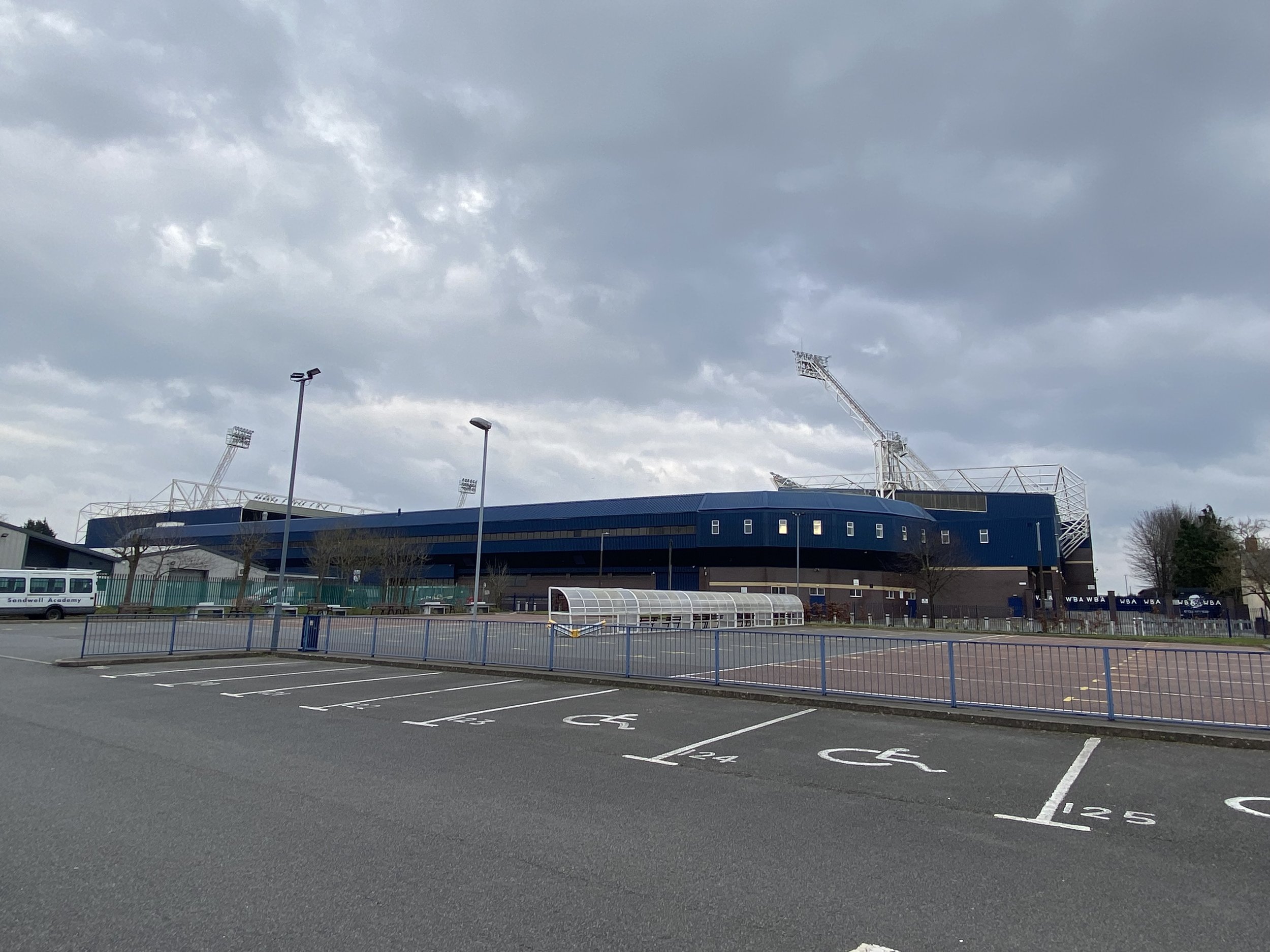The Leicester Way: Why Enzo Maresca is the perfect pick to lead City back to the promised land
After an interminable wait, Enzo Maresca is set to be the next Leicester manager. James Knight wonders if this is the best possible appointment the club could have made.
Avid followers of the Opta Stats Hubs throughout 2022/23 will have noticed something odd. Our data overlords classified each team’s preferred style of play on a graph, represented as points on a spectrum ranging from ‘fast and direct’ to ‘slow and intricate’.
Many of the results were as you might expect. Your bottom-feeding filth – Notts Forest, Leeds - in the top left direct corner, with the better teams scattered out further towards the right and Manchester City all on their own far out to the bottom right, the slowest and most intricate team in the league.
Throughout the first half of the season, these results showed something that was dramatically at odds with the state of the Premier League table. The team that most closely approximated the style of the Manchester oil boys wasn’t Arsenal, Liverpool, or Chelsea. It was Leicester.
That’s right: The Foxes spent large swathes of the campaign trying to play like Manchester City.
By the end of it, we had drifted back to the left, a representation of Dean Smith’s attempt to get the ball forward more quickly, even if that led to fruitlessly pounding the ball over the heads of his players at St James’ Park.
Even then Leicester remained a more or less unique case: closer in style to Manchester United (3rd), Newcastle (4th), Tottenham (8th) and Fulham (9th) than any team in the bottom half, let alone the relegation zone.
As Brendan Rodgers was in charge for so long, many of us equated the style with The Rodgers Way, rather than a fundamental decision at a higher level about how Leicester should play. Perhaps we were wrong.
Which way to the Leicester way?
Enzo Maresca is a clear continuation of the Guardiola-isation of Leicester, a plan to turn the counter-attacking team that won the title into a technical side that wants to dominate the opponents. Even if we know little about Maresca’s managerial persuasion, his role in the Guardiola empire makes it pretty obvious what to expect.
Following in the footsteps of Rodgers and Claude Puel, that’s now six years and three permanent appointments which all speak to the same thing: this is who we are.
Yet there’s a tension at the heart of this. There has never been a Leicester Way, certainly not on the same level as absurd notions of the West Ham Way. But if you polled the fans on what they expect a Leicester side to be, it’s unlikely this is the style that they’d choose.
That much was evident throughout the Rodgers tenure. Those of us grounded on Martin O’Neill could see a clear through-line connecting him to Nigel Pearson and on to Claudio Ranieri’s unbelievables. Rodgers threw a hard turn onto the end of that line, preferring to defend with possession, control the ball, wait patiently for openings.
Which was fine, as long as he married that with more traditional Leicester qualities: counter attacks, high energy football, aggressive centre backs getting their giant heads on the end of crosses. It was when those dried up that the problems started. The initial promise of the short-lived Smith era was based around him bringing a back-to-basics approach. Get it forward. Get into ‘em.
So it’s strange, on the face of it, that the new man is a Guardiola disciple. Destined, perhaps, to bring a more extreme version of Rodgers ball. Many clubs follow the Fat Pope, Skinny Pope theory, seesawing between radically different managers and styles each time one of them fails. Look at Spurs: Redknapp, Villas-Boas, Sherwood, Pochettino, Mourinho. Now Postecoglou to replace Conte. Leicester, it would appear, do not subscribe to that method.
For all of the criticism of the leadership over the past weeks and months, this is a good thing. The vision should transcend the manager and the current playing staff. For all the criticism from the stands at a style of play that wasn’t working last season, perhaps the club looked at the data that had us playing like a superclub and felt that we were on the right track.
Go holistic
Possession football has a bad name at the club at the moment because we’ve just seen the worst of it, but it is, almost-universally, how the best teams play. If we assume that the plan is to marry possession with the same more Leicester-like qualities we mentioned earlier - energy, aggression, desire - then it makes sense to look for a manager who might be able to continue down that path.
The more last season recedes into the rear-view mirror, the more the glaring inadequacies of the playing staff hove into view. An intricate style that relies on concentration, fitness, and giving your all for the cause is unlikely to be executed best by a tired, injury-prone group with one foot out the door.
The last Manchester City assistant to take over in a big chair was, of course, Mikel Arteta. To outsiders, Arteta mostly comes across like a lego-headed weirdo, but he is exactly the sort of person you want in your corner. He has been able to recreate a Guardiola-like style with the emotion and energy turned back on. That’s exactly what we want with Maresca: someone to embrace the club, lead us into battle, and reconnect with the Leicester spirit.
We have to be aiming for this appointment to not only take us back to the Premier League but back to the top half. To do that, you have to play a certain style. The Rodgers Way. The Guardiola Way. Perhaps now the Leicester Way as well. That’s true even in the Championship; while Luton and Coventry made the playoff final with a tactical plan that does the word ‘direct’ a disservice, Vincent Kompany’s Burnley won the title with 100 points and have a much greater chance of success next season.
Similarly, the manager has to fit into the overall long-term plan at the club. He has to marry up with your recruitment. If your success is based on identifying young, technical players then he has to be able to use them properly. There’s no point hiring a head of recruitment to sign players for one style of play and picking a manager to do something completely different.
The Martyn Glover regime signed Harry Souttar and Victor Kristiansen in January. Those two players were brought in to add physicality, yes, but also to bring ball-playing from the back and attacking width on the left. It would be strange to then appoint Smith, for example, who seemed to have little intention of using either. Some of the other summer links: Tom Cairney and Ilias Chair in particular, are technically good, attacking players to suit a certain style of play.
A lot of us have spent weeks fuming impotently at the lack of action from the top. No new manager for weeks, no new signings, no inquiry. But it is possible to see a plan at work here. Waiting for Manchester City’s season to finish because you viewed one of their staff as the right man for the job makes perfect sense.
Then there’s the fact that many of the online critiques of Scott Parker, seemingly the other main candidate for the job, make him sound like a sort of budget Rodgers. His sides dominating possession and forgetting to have a shot on target. That at least speaks to a coherence in the search that seemed to be lacking at first.
Maresca is a gamble, that much is obvious. This is a man with virtually no managerial experience, and what he has had isn’t great. But it’s an appointment that matches the identity of the modern Leicester, the one that reached the Champions League and has identified and developed top talent from around the world. It’s one designed with Premier League success in mind, not just the immediacy of a Championship return. And it’s the first positive thing to happen to the club in more than a year.




